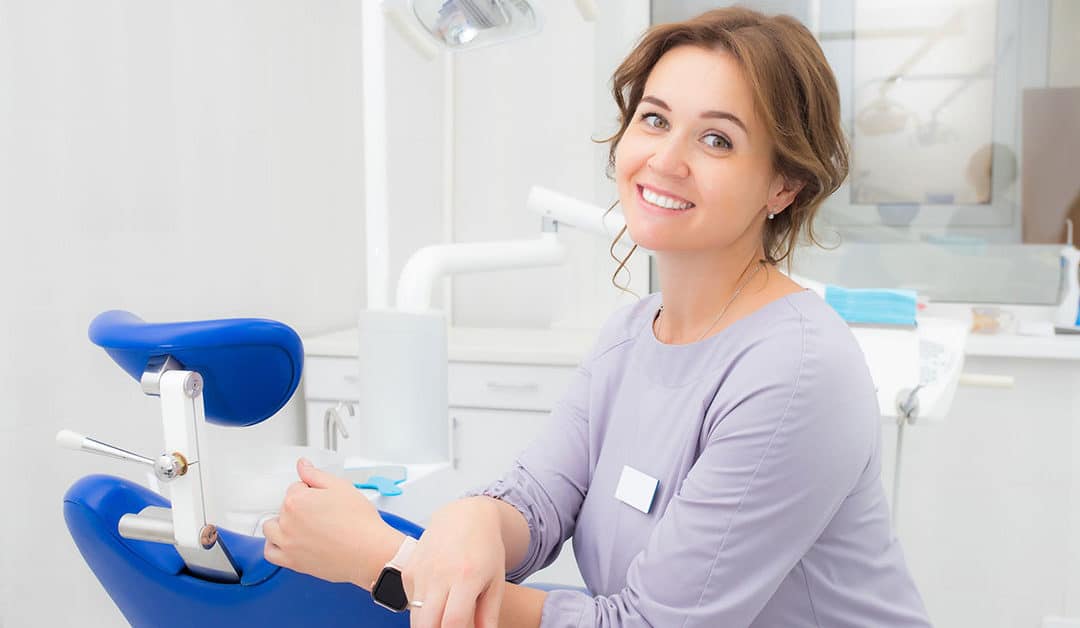Buying a dental practice is a monumental moment in a doctor’s career. You find yourself feeling excited about the prospect of owning your own practice and all of the possibilities that come with it. However, you may also find yourself feeling overwhelmed and possibly mystified by the process. There are a lot of factors to consider, including a few which you may not have thought about before.
It’s important to remember that the purchase of a dental practice is a multifaceted thing which demands different skills. It’s a complex business transaction that requires the advice of a team of experienced professionals. Yet it is also a major step forward for your personal life and career. It may represent the realization of a dream to own your own business and be independent, and it surely has an emotional component. Whatever it represents to you, it’s best to be prepared to make the right choice in what practice to buy, making sure it fits with your vision of your career and your life.
To that end, we’ll explain some of the things you need to know to help you get started.
First, Assemble Your Team of Trusted Advisors
Once you have determined where you will be buying a dental practice, you need a group of local, experienced professionals to guide you through the transaction. At the very least you will need an accountant and a lawyer with experience in dental transitions. There will be a lot of accounting information and contracts to be reviewed. Many aspects of a dental practice sale are unique, so a generalist may not fully understand parts of the transaction or how the accounting works.
It’s important that you go with professionals who already have relevant experience, otherwise you will risk important details being overlooked or mishandled. Also, you don’t want to be paying anyone’s hourly rate to try and figure something out. You’ll save time and money by going with people who already know how to do the job right.
You may also want to retain a dental practice transition specialist. It’s not uncommon for a buyer to proceed without a broker, so this is really a matter of what gives you peace of mind.
Be prepared to sign a non-disclosure agreement fairly early in the process once you start looking at specific practices. These agreements will protect both you and the selling doctor. Both of you will be providing a lot of financial and personal information to the other and the non-disclosure document will make sure that information remains confidential.
Create a Budget
If you’re like most doctors looking to buy their first practice, you probably have some sizable student loans. You also will have your other living expenses—house and car payments, household costs, etc.—that you need to cover, along with contributing to a savings or retirement fund. Making a list of your expenses will tell you what you need to earn as a salary.
In addition to paying yourself, you will also have the practice loan to make payments on. The good news is that most doctors are able to make these payments without problems. Default rates on dental practice loans are less than one percent. This is why banks see dental practices as a safe bet.
Knowing all of this information will help you determine what kind of practice you can afford to buy. Again, you can consult with your dental CPA to help figure out the numbers and what will and won’t work for you.
Finally, you need to consider how the transition will work with regard to whether the selling doctor will stay on for a period. Some buyers want this, others don’t. It’s the same with selling doctors. It’s important to think through from a budgeting standpoint because that will be another salary you may have to factor in, at least temporarily.

Don’t Underestimate the Value of the Existing Staff
When buying a dental practice, you are also getting a fully staffed office. You probably won’t meet the staff until quite late in the process, as the need for confidentiality in dental practice transitions is essential. But pay attention to what the selling doctor tells you about them. Be prepared to ask questions about them.
Keep in mind that patients are going to have to adjust to seeing you as their dentist. Keeping the other faces the same in the office can be reassuring and help stem patient attrition. Also, if the office is well-staffed, your own adjustment will be much smoother. They are the keepers of institutional knowledge that can be invaluable to a smooth transition and your long-term success in the practice.
See the Practice in Person
This may seem obvious, but it is essential. Every practice is different, and you have to see it for yourself before you can have a good sense of what the practice is really like. There will be things you learn, perhaps both good and bad, that can’t be reduced to paper.
You need to have a close look at the practice’s patient flow. How many patients have been seen in the last 18 months? How many new patients are they getting each month? This information, like cash flow, will tell you whether the practice is stable, growing, or declining. Keep in mind that a declining practice isn’t necessarily a bad buy, if you can see the opportunities for growth within it.
Price May be Negotiable . . . But Should Be Negotiated First
How does a doctor determine what his dental practice is worth? Well, that depends on the doctor and their team of advisors. For instance, with DDSmatch Mid-Atlantic, all of the practices we work with have their value determined by a third-party certified business valuation analyst. We take this approach so we can present buyers with what can be independently verified as the true market value.
Sometimes, however, a doctor may overvalue their practice. This is somewhat understandable as, to the selling doctor, the value of their practice transcends the price tag. It represents a lifetime of hope and work. Reducing that to a number can be difficult, especially if that number comes in lower than they had hoped. So, when you are looking at a practice, keep in mind that the asking price may not reflect its true market value. Wait until you see how the value is supported by the financial information the seller provides to you.
And you will be provided with a lot of financial information (financial statements, tax returns, etc.) that you should review carefully with your dental CPA, so they can advise you on whether the numbers look good or not. Again, professionals with dentistry-specific experience will be better suited to advise you, as they will understand the industry standards for the various costs and margins which indicate how well the practice is being managed.
Remember, however, that the selling price is just one of several details that need to be agreed upon before you can complete the transition. There are considerations regarding property, equipment, staff, the actual transition itself, and more. Because of this, if you and the seller have already agreed on the price, both parties will usually be more amenable to cooperate on the other details.
Emotions can run high, especially if one party thinks the practice is either over- or undervalued. Getting past that point early in the process will help the rest of it go more smoothly.
Is Buying a Dental Practice through Owner Financing a Good Idea?
As with many questions in life, the answer is, “it depends.” It depends on you, as the buyer and what you are comfortable with, along with what you can qualify for with a traditional bank loan. And it depends on the seller and what terms they are offering. Finally, it depends on your trusted team of advisors. What do they think of the deal and the options available to you?
On the one hand, conventional wisdom suggests you are generally better off going through a bank for your practice loan. The reasoning is, in part, that you will only benefit from having a dental-experienced banker reviewing the financial information. Like your dental CPA, they have knowledge about dental practice valuations, costs, margins, profitability, etc., and will act as another experienced check on a seller trying to paper over any defects.
Also, it’s likely the selling doctor is counting on the proceeds of the sale to fund their retirement, at least in part. This can create an incentive for them to try and force a particular result. In such a case, they will not have your best interests in mind.
Of course, a banker may not have your best interests in mind either, which is fine, because that’s not their job. Their job is to protect the bank’s investment and they will take an objective approach to evaluating both the practice, and you, to determine whether the loan is a good risk for the bank.
So, while the bank isn’t looking to protect you, they are looking to protect their money, which you will benefit from by their due diligence in determining whether this is a good practice to loan you money for.
One the other hand, if you have assembled a good team of professional advisors, you’ve hired them for a reason: to advise you in areas where they have more knowledge and experience. Your dental CPA, your practice broker, your equipment representative— they’ve probably been looking at dental practices and transitions for several years and can tell you where they see opportunities and where they see potential problems.
If a seller is offering financing, talk to your team about it, see what they have to say. They are also going to be looking closely at the practice and it’s financial records, and you are paying them to protect your interests (unlike the banker). So while seller financed dental practice sales are not the norm, it could be a good option.
Real Estate Deals and Lease Negotiations are Not Part of the Practice Sale
If the selling doctor owns the property under his practice, it may or may not be up for sale. That is for them to decide. If it is for sale, however, that will be a separate transaction with its own negotiation and additional funding.
Similarly, the lease will be separately negotiated. You will need to provide your lender with proof of a lease, including any extensions or renewal options, that will be equal at least to the term of the loan.
Your team of experienced advisors will also be able to help with these common considerations.
Buying a Dental Practice May Seem Complicated, But It Doesn’t Have to Be Difficult
Hopefully the realities we have discord here have not put you off the idea of buying a dental practice. It may seem daunting, but really simply requires you to be thorough and make sure you have advisors you know you can trust to help guide you. Do your due diligence and don’t rush into anything before you are completely sure.
Here at DDSmatch Mid-Atlantic, we specialize in finding the right match between a buyer and a dental practice. We understand that you aren’t just buying a set of patient files and equipment. You are buying the legacy another doctor has spent their career building and using that as the foundation for your own legacy. As you know, not any two practices are the same, and selecting the right practice will make all the difference to your success.
We have many available practices of all types in Maryland, Virginia, and Washington, D.C. You can check them out on our website or search by state across the country. If you are interested in taking the next step, contact us today.

